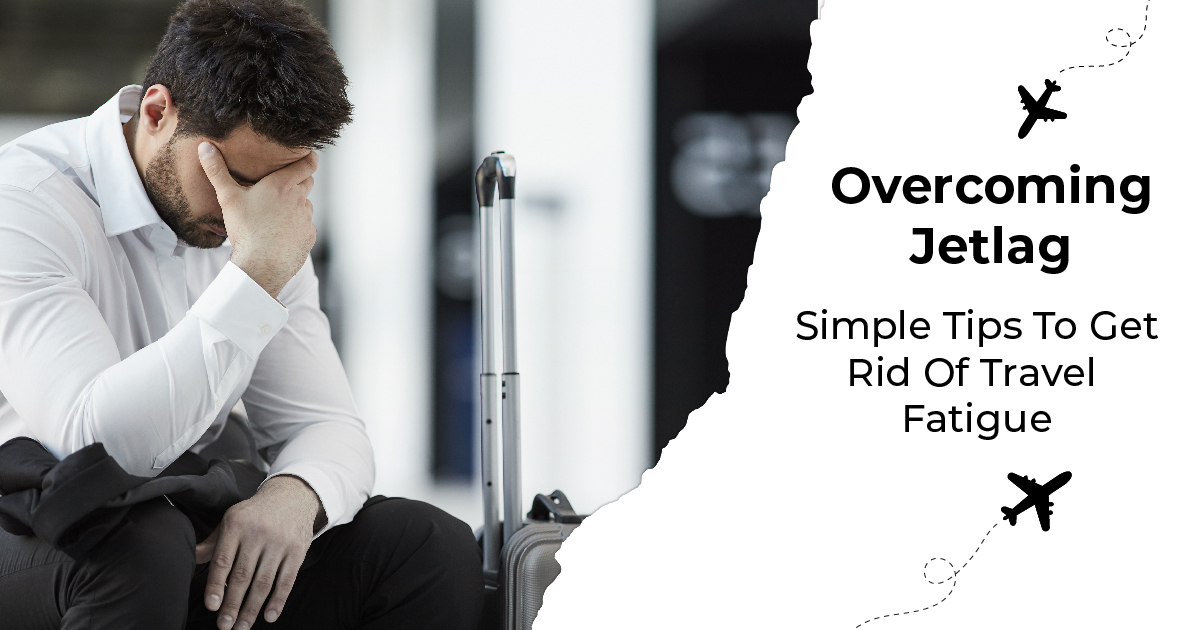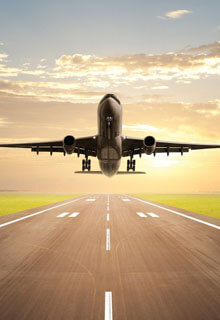Overcoming Jetlag: Simple Tips to Get Rid Of Travel Fatigue
Jet lag happens when you rapidly cross time zones, disrupting your body’s natural rhythm. Although it’s usually temporary, you can hasten adjustment to the new time zone with some simple tips. You can alleviate jet lag symptoms with some strategies. Are you planning to fly down to India to see the Hidden Gems Around the Char Dham? Then keep these tips in mind. They will help in overcoming jetlag easily.
What Is Meant By Jetlag?
Jetlag is known as the circadian rhythm. This rhythm helps regulate your sleep-wake patterns. Jetlag occurs when your natural body clock gets thrown off due to traveling across different time zones.
Travel disrupts the cues your body relies on to regulate its internal clock. These signals are light exposure, body temperature, and hormones. Common jet lag symptoms include headaches, fatigue, sleep troubles, and difficulty in focusing. It can also result in mood changes, appetite fluctuations, and digestive issues.
Jet lag is often worse when traveling from west to east. Its effects might linger longer when traveling in that direction. Additionally, frequent travel and older age can increase your vulnerability to jet lag. Private jet charter services may be one of the ways of reducing the jetlag impact. This is because you can decide when you want to fly in a private jet.
Tips To Overcome Jetlag:
Jetlag is a frequently experienced phenomenon. There are various methods you can attempt to ease the adjustment to different time zones. These tips can help in reducing the symptoms.
While your body will naturally adapt to the new time zone over time, these strategies can be beneficial. They are especially useful if you have a short trip or need to quickly regain functionality after your charter helicopter flight.
Adapt To The New Time Zone:
Upon arriving at your destination, prioritize swift adaptation to the local time zone. Ensure all manually set timepieces reflect the new time. To optimize adjustment, synchronize your eating and sleeping patterns with the local schedule. This will aid in preventing confusion and disorientation.
Adjusting Sleep Time:
Ensure you adjust your sleep to the new time zone. If your charter helicopter flight coincides with your destination’s nighttime, attempt to rest during the journey. For this, you can try using aids like noise-canceling headphones, eye masks, and comfy pillows. Also, resist the urge to nap upon arrival during the daytime. This is because it can disrupt your sleep pattern later on.
Stay Hydrated:
During long flights, dehydration can set in, often leading to reduced water intake to avoid frequent bathroom breaks. However, staying properly hydrated is essential to manage jet lag and travel fatigue. Carry an empty water bottle through airport security and refill it at the terminal. You can also purchase water during your flight or request it from the flight attendants. Maintaining adequate water intake upon arrival can help alleviate jet lag symptoms.
Embrace Natural Light:
Jet lag disrupts your body’s internal clock due to changes in light exposure while crossing time zones. Sunlight exposure can help regulate your internal clock. It can reduce the release of melatonin, the hormone responsible for sleepiness.
Spending time outdoors in the morning sunlight can awaken your body, especially if you’re traveling east. Conversely, increasing light exposure at night can assist in staying awake. You can try this if you need to adjust to a later bedtime in a westward time zone. Consider using special light devices, such as lamps or light boxes, to simulate natural light exposure. This can also be helpful for conditions like seasonal affective disorder.
Utilize Caffeine:
Remember that caffeine won’t cure jet lag. But it can help enhance alertness and focus during the daytime. Research suggests that consuming 300 milligrams of slow-release caffeine can improve alertness, particularly for those traveling eastward. Coffee, tea, soda, energy drinks, and chocolate all contain caffeine. Be mindful of added sugars in these beverages. Limit or avoid caffeine consumption in the afternoon and evening to prevent sleep disturbances.
Optimize Your Sleeping Space:
Prioritize comfort and conducive sleep conditions while traveling. Adjust the in-house temperature to ensure a cool, comfortable environment for sleep. Silence any phones or clocks that might disrupt your sleep. Consider bringing portable comforts from home, such as a white noise machine or a favorite blanket. Familiar scents and items like scented lotion can help you relax and sleep better.
Consider Melatonin:
Melatonin is a natural sleep-inducing hormone. It can be used as a supplement to counter jet lag-related sleep issues. Taking it before sleep aids in falling asleep. Using it in the early morning can extend sleep while adapting to a new time zone. Limit melatonin to 5 mg to avoid side effects. Consult a doctor before taking melatonin, as it’s not FDA-regulated.
Consult a Doctor
Discuss with your healthcare provider if sleep aids could alleviate jet lag-related insomnia. Sleep aids might provide rest during the night as you adapt to a new schedule. They could also be considered during air travel. Be aware that sleep aids have potential side effects. So a doctor’s guidance is crucial to weigh the pros and cons.
Flight Timing Should Be Adjusted:
Choose your flight timing wisely. Opt for flights that align with your usual wake-up time at your destination. Many long-haul flights are strategically scheduled to arrive in the morning. Keep in mind that your arrival time plays a key role in minimizing jet lag effects. You can consider private jet charter services. This is because you can schedule charter aircraft timings as per your choice.
Long Layovers Should Be Avoided:
Minimize extended layovers across multiple time zones if possible. Prolonged layovers disrupt your internal clock as there isn’t sufficient time for complete adjustment. Opt for nonstop flights or brief layovers for smoother travel.
Treatment Options For Jetlag:
Jet lag doesn’t have permanent solutions. But if it’s a recurring issue due to frequent travel, consult your doctor. They might suggest sleeping pills or effective supplement use like melatonin. Persistent jet lag symptoms beyond two weeks could indicate another condition. For this consulting a doctor is important.
Recovery Duration For Jetlag:
The extent of jet lag symptoms intensifies with more time zone shifts. Typically, it takes a day to adjust per time zone crossed. For instance, crossing five time zones may result in 5 days of jet lag symptoms.
Preventing Jetlag:
Travel inconveniences like jetlag are inevitable. But you can prepare by gradually adjusting your sleep schedule before departure. Shift your routine closer to your destination’s time zone. Allocate time during your trip to adjust to the new time zone. This way, you can have days where you feel energized and refreshed.
Conclusion:
Jet lag is a condition that typically resolves within days or weeks. Managing its symptoms during initial travel days to a new time zone can be challenging. Adapting your schedule and utilizing interventions to regulate sleep and wake times might aid in minimizing jet lag effects. You can also make use of the charter aircraft of Megamax Aviation to avoid jet lag. Megamax Aviation is also known for providing packages for discovering Hidden Gems Around the Char Dham.
So, follow the above tips and reduce the issues that you might face due to jetlag.



